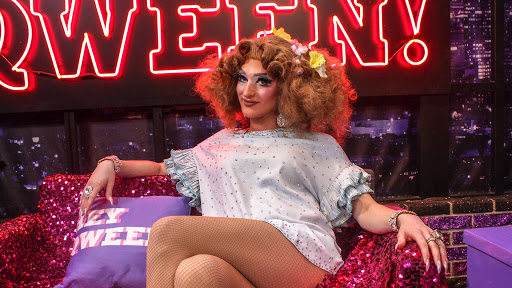After being outed for a prolonged history of racist behavior at Chicago’s Black Drag Council’s town hall in June, T Rex, one of Chicago’s most influential drag performers, lost the power that had allowed her to harm people of color. While T Rex went silent after the allegations, four months later she received her own feature on Chicago Magazine to share her side of the story—and drag queens everywhere took to social media to call out the hypocrisy.
Many American neighborhoods designated for queer people, like Chicago’s Boystown, are infamous for their racism and unfriendliness towards queer people of color. But little is usually done to upset the power dynamics within a community that place able-bodied, wealthy, cis-gay men at the top. Finally this summer, as BLM protests filled the streets of Boystown this summer, queens of color decided to take action into their own hands.
Local drag performers Shea Coulee and Jo Mama were the first to call out the problematic queen by name, which led to 50 local drag performers signing an open letter calling her as well as Boystown establishments out for their mistreatment of Black performers. This list outlined how the queen, “abused [her] power and…helped perpetuate racism through Boystown by reducing all people of color to tokens for [her] personal gain.” Their demands included bi-weekly hosting trade offs with a Black queen, booking more Black local talent, halting her constant microaggressions and criticisms of Black queens, as well as her attendance at digital Town Halls to address her behavior. The queen attended the Town Hall, allegedly drunk, and refused the bi-weekly hosting trade off.
The letter resulted in T Rex being fired from the hosting roles and booking drag nights at Berlin and Roscoe’s, two of the area’s most historic and popular gay bars. It even led to the neighborhood changing its name in solidarity with the members of the community, including trans people, who are frequently discriminated against in largely cis-male spaces. But many queens feel like the magazine feature telling the oppressor’s side of the story was counterproductive.
While the story features interviews with some of Chicago’s prominent Black queens, including The Vixen, many felt as if the prolonged interview and photoshoot with the ousted queen aimed to humanize her and did not focus enough on the pain she caused Chicago’s queer people of color, reducing some of her racist aggressions to footnotes in the story.
